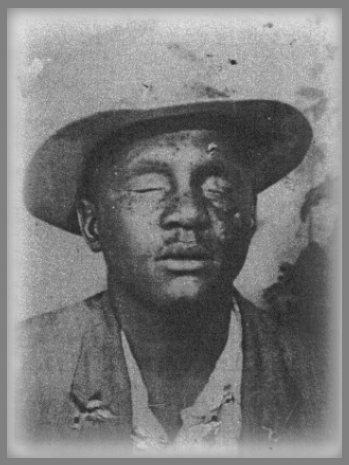Following a brief apprenticeship in Houston clubs, the wiry guitarist toured with Roscoe Gordon’s road band. Later, with Cecil Harvey’s group, he worked the territory from Texas to Nevada. Around the age of twenty he settled (if that’s the word for the wild lifestyle he recalls there) in El Paso, where he played the rowdy border town circuit, including a stint at the Lobby Bar in Juarez, Mexico. There he met the group The Champs, who took him to California in 1961 to record on the Donna label (the original versions of “Hard Way Four” and “The Last Tear.” In 1963 Little Joe returned to Los Angeles, where he recorded for the Federal label, ultimately releasing tracks such as “Someone Loves Me,” “I Feel All Right” and “Bossa Nova and Grits.”
In the years that immediately followed, Little Joe bounced around his old turf, from Houston to Juarez and back, performing with all manner of groups. But the bad habits he'd developed in the wide-open party atmosphere of the border bars eventually made him an all-too-willing victim of substance abuse. During the hazy couple of decades that followed, he would often find himself on the streets, owning nothing but the pawn ticket for his guitar.
By the mid-1990s he was essentially homeless: first camping out in the dilapidated structure that had once been his uncle’s barbershop, then (after it burned down in 1997) sleeping in an abandoned car that he had pushed onto the vacant lot. But he never stopped making music. In fact he claims to have found inspiration by being forced by circumstance to hear certain sounds: the constantly improvised riffs of the mockingbird, the staccato bark-and-response of dogs, the eerie howl of a chilly wind.
He plays that high-speed, low-down, grade-A, third-ward Texas blues. He played it with the top of his head, with his teeth, with his crotch, with his foot, and then when he wasn't using those parts of his body his fingers worked up some licks that were absolutely astonishing. After he got through with his two songs, he immediately started passing his hat. The people were already worked up. They went from a mellow blues feeling to a frantic blues feeling if you know what I mean. They went from happy to delirious! Little Joe has that affect on audiences. Few people I have ever seen can cause the kind of stir that I have seen with Little Joe Washington. He is like a blues terrorist packing lyrical explosives. He just shows up and blows up. Then he's gone!
His musical taste goes from straight up guitar slim style blues to albert collins, who he loved, and joe hughes who is his brother, deep down texas third ward bottom style blues, or he could swing into some stuff by thelonius monk or miles!
You just don't know. he plays the guitar with every part of his body. and i do mean every part. to see little joe play is like going to heaven, you feel like you finally saw the real deal-Sonny James. Check Lil Joe Washington latest release - "Texas Fire Line" on Dialtone Texas Fire Line .


